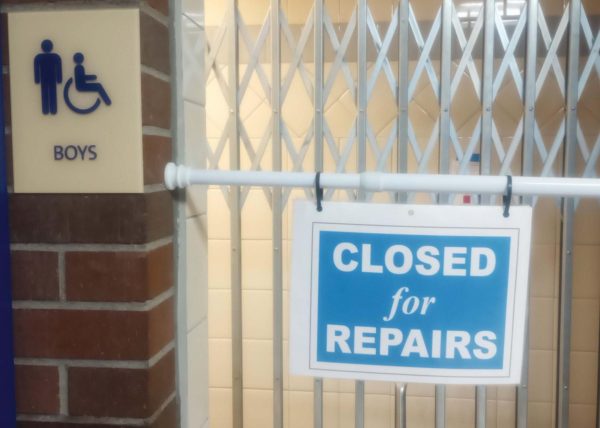Tests do not determine your future or worth
The ACT is not a proper measure of our worth.
High school students are measured by test scores.
Our success is determined by how well we do in our classes and our ability to sit in one room for four hours and take a big, important test. People look at quantitative data and decide that this will tell them everything they need to know about us. They figure that it’s easier to look at the numbers, at how well we perform on paper, rather than asking the hard questions and actually determining our true worth.
When I apply to colleges in a few months, they will see my grades, my ACT score, and one personal essay. This is enough for them to decide whether I can go to their school, whether I am worthy of the level of education they can offer. And I’m not saying this is true of all schools, but I believe that the vast majority of universities care more about one’s test scores than one’s character. They want students that can perform well, that can raise the student GPA.
One test should not determine our futures, it shouldn’t decide what college we go to, the major we go into, or the job we will get one day. Standardized tests only favor the small percentage of the population that are either good at taking such tests or those that have the resources necessary to do well.
There are many things that can improve one’s performance such as test prep classes, private tutoring, even retaking the test to get the best score. But what one thing do all these examples have in common? They cost money. Our test scores can also play a major role in being awarded scholarship money.
This means that in order to get substantial financial help with college, you must do well on a test that in itself requires a lot of money. Should colleges look at test scores with the same regard, when they are so dependent on factors out of a student’s control? This only sets the stage for the rest of our lives. In nearly every aspect of our lives, we are judged by factors that we are not always in control of.
People are looked down upon for having a lower than standard income at a job that is not considered prestigious. But why are people at such jobs? Maybe it’s because they weren’t qualified for anything more distinguished because they didn’t get the right degree and they didn’t study the right major, at a fancy college, all because of a score they got on a test when they were 18. Ordinary people are governed by these ideas of statistics. For the things that aren’t measurable like personality and kindness, there’s no way to keep track of these things so we just don’t. Unlike a test that millions of teenagers in America take, there is not a given pass or fail of these characteristics.
This classification and dependency on numbers may go into nearly every aspect of life but I truly believe it starts in school with a single test. My ACT score might get me into a good college, but it might not.
Rather than these traditional measures colleges could offer placement tests that decide our classes but not our acceptance. Another option would be to look at the improvement of test scores over time rather than one big test.
At Park we already take NWEA (MAP) tests every year. If more schools did this then colleges could see how we have improved over four years and focus less on an individual score.




